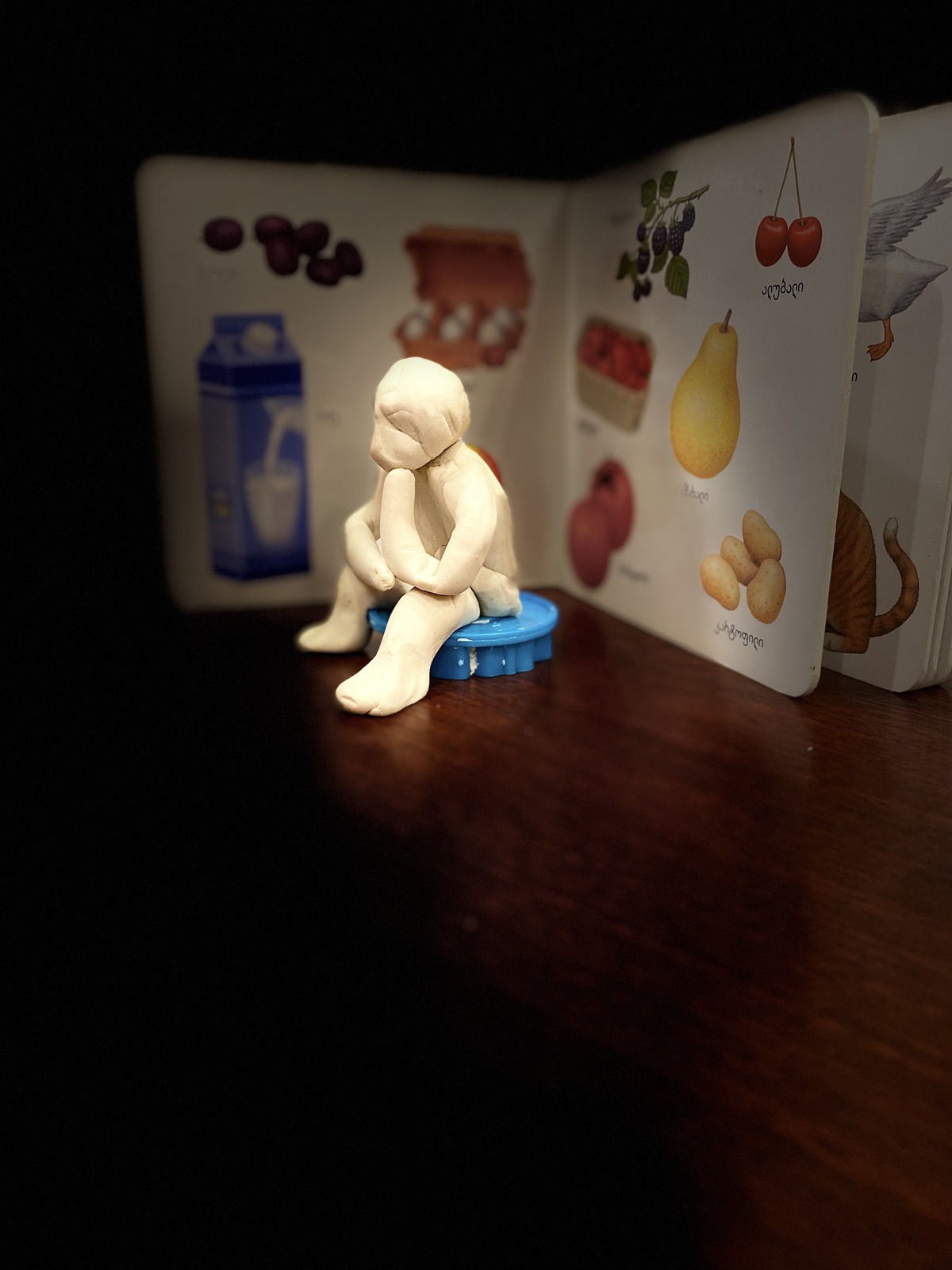In The Eyes Of The Beholder Lies The Truth
Photo and clay figure by the author – Joseph Boccuzzi
You can measure temperature with a thermometer and get an indisputable reading. However, is it comfortable in the room? Someone wants to change the environment by opening a window or otherwise controlling the air temperature in the room that we will all have to either agree on or get use to. Can you measure good and bad with a scientific instrument? Maybe just like the perception temperature, you can only apply a judgment as to if it is comfortable for you or not.
We all share space we occupy, maybe starting from the same room, city, country, or planet. Somehow, someone else is affected by our preferences and perceptions by the judgements we apply. Finding agreement on how it is and how we want it be extends across all aspects of co-existing. Finding consensus seems fair. However, consider the old joke that a statistician might suggest; that if you put your head in the freezer and your feet in the oven, then on average you will be comfortable. Like the individual person in this humorous example, the collective we often have to co-exist as one body. The extreme feelings in some areas will affect the overall health and well-being of all parts, sometimes at the expense of another. Even when we sit, sometimes it is comfortable for awhile before we feel the need to change position to adjust to subtle changes in ourselves and our environment. These are just metaphors for the collective and living “we” in shared spaces. Individuals are just a part of a larger entity and all parts are connected, even if indirectly. So, how do we decide on what is good and bad? There are desirable and undesirable actions and outcomes that sometimes take on a life of their own.
“Therefore, since we are surrounded by such a great cloud of witnesses, let us throw off everything that hinders and the sin that so easily entangles. And let us run with perseverance the race marked out for us,” – Hebrews 12:1 NIV
“The teachers of the law and the Pharisees brought in a woman caught in adultery. They made her stand before the group and said to Jesus, “Teacher, this woman was caught in the act of adultery. In the Law Moses commanded us to stone such women. Now what do you say?” They were using this question as a trap, in order to have a basis for accusing him. But Jesus bent down and started to write on the ground with his finger. When they kept on questioning him, he straightened up and said to them, “Let any one of you who is without sin be the first to throw a stone at her.” Again he stooped down and wrote on the ground. At this, those who heard began to go away one at a time, the older ones first, until only Jesus was left, with the woman still standing there. Jesus straightened up and asked her, “Woman, where are they? Has no one condemned you?” “No one, sir,” she said. “Then neither do I condemn you,” Jesus declared. “Go now and leave your life of sin.” – John 8:3-11 NIV
There is much wisdom to be found in the Bible, regardless of one’s, religious beliefs, simply because much of it is based on fundamental human behavior, for better or for worse. The “Golden Rule” says, “Do unto others as you would have them do unto you”. Therefore, we must constantly take into consideration our actions and reactions. Even though we might convince ourselves that we are justified, there may not be mutual consensus in the affected or even in the greater we. Two wrongs don’t make a right. Sometimes we just have to be better shock absorbers for the bumps in the road of life and not make things worse than they already are.





Leave A Comment